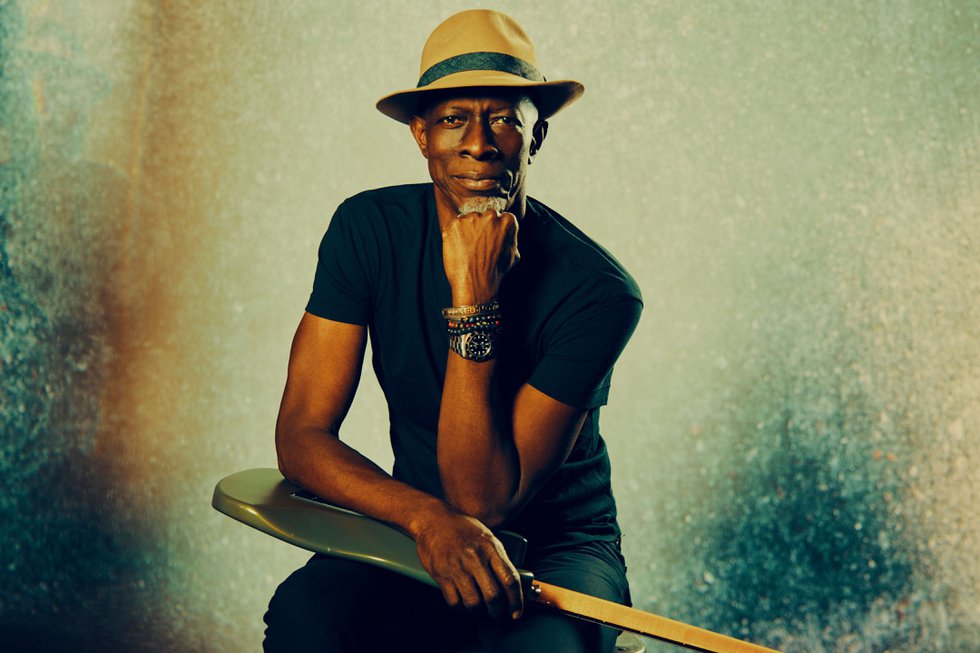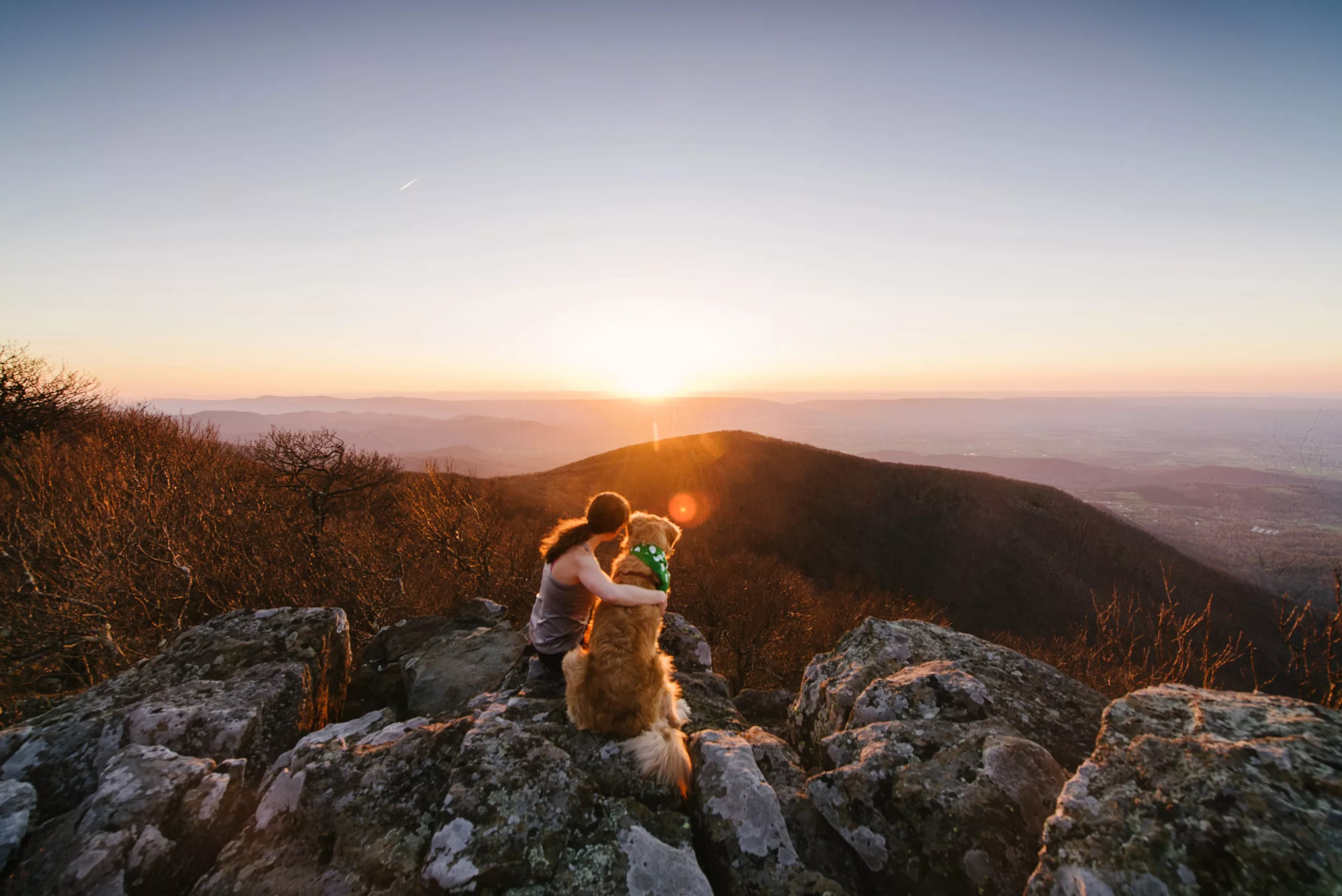Five-time Grammy-winning blueman shares his passion for music and place.

Keb’ Mo’ will be at the Virginia Arts Festival’s Williamsburg Live this June. Tickets: HERE.
Konstantin Rega: So I was first introduced to your work by my mother, who gave me your self-titled, 1994 album. How do you see your music progression over the years?
Keb’ Mo’: I don’t always know what to say about my music, but I enjoy doing it. I enjoy bringing it out to people. I kinda see my career as just one long make, one record after another. I just try to make one that’s not like the last one. And I look at it like it’s myself—I’m the common denominator of the music. And that kind of gives me permission to spread out a little bit, though I don’t spread too far. But I just like going into songs and traveling to go to see people.
So how did you kind of get into playing music and singing?
The way I got into music was really circumstantial, you know. I was encouraged, or really dragged and pushed to be in music by my neighborhood, my mother. And the people that I started to work with when I first began playing—though maybe not all at the same time. But throughout my history, music opportunities kept coming. Whether I wanted them or not.
And so when you were trying to find your sound, who were your inspirations?
Well, my first inspiration was just to learn how to play the guitar, and learn how to play in a band. The influence came later on. Like, “Oh, you can listen to it that guy or this one.” You know, every kid feels like they’re odd. So I was just trying to fit in. And music was a place where I fit in the most. And I just never stopped doing it.
You’ve also worked with a lot of cool people, like Taj Mahal. What do you get out of that relationship, that musical partnership?
What I’m looking for—whether I work at a studio work or performance—is always the same thing. I’m looking for something with a little magic in it. I’m looking for a moment, I’m looking for a spark of creativity, I’m looking for some joy, I’m looking for happiness. Just looking for something special, I guess, that says it in a nutshell.

Do you think that pushes you to be a better musician?
Yeah, does push me to learn more. I tell people all the time, if I had’a known that I’d have had this many music opportunities, I would have studied harder. But you know, I was always just going along doing it, playing gigs.
I loved being a sideman, playing behind other people and singers. I really liked that. But lo and behold, I stopped doing that at some point. Yeah, it would have been nice to be in a band that was doing well and just be a guitar. But no. I accept what comes along. Because in a sense life, the universe, man, whatever you want to call, it always has a better plan for you than you can think up for yourself.
When you’re composing, when you’re working on a new song, do you draw from your past experiences, from other people around you at the time?
I draw from whatever affects me at the time, what’s going on with me. I draw from what’s going on musically in the world, too. When I say, “I draw from the trend,” I just like to be aware of it; I don’t like to be a part of the trend, but I like to be aware. Because that awareness does something to your music—it kind of puts you in the consciousness of “the now.”
And I like subject matter, good subject matter. Especially when it’s true, when it has some truth. That’s really magical. Now you got a platform, you got a soapbox that you can stand on. And you can talk about something that everyone’s going to understand. And that kind of brings the room together, in the coolest ways.
So with your latest album, Good To Be…, you sort of reminisce about your past. Where did that album come from?

It came from all over the place. It came from a moment; it came from moments of Vietnam, Compton, it came from my past, which was the last song of the record which was called “Quiet Moments.” That song was written in, like, in 1979, way back there. So I was in the now and in the past.
I was influenced by what was going on. All these things were happening. It was really juicy time for me. Because I was going back to my hometown a lot. And we were stuck there during the pandemic. Also, not going many places. And there was social upheaval around that, in and of itself. Just seemed like everybody was getting crazy.
And in the meantime, my wife and I were having our house redone and that went to a screeching halt. It was just crazy, barely got done, but it was just a really wacky time.
So the record came out of that. I’m pretty proud of it, you know, and it was totally disjointed. The hardest thing about it was to connect it and going, “Okay, what song goes where. This is a mess.” So I just looked in there and thought, it must be connected for it all came out of the same stuff, you know. So there must be a way to connect it. But there it was.
Of course, people just kind of skim through albums now. Many listened to it online, streaming it. So I don’t know really how many of them actually listen to it from top to bottom. I don’t always do that, myself.
There’s so much out there that you find yourself skipping over things. And you’re not patient enough. No more of that vinyl patience, because you had to get up and go lift the needle and it was kind of a pain. Now, you just hit that little fast-forward button on your phone and it’s just the next thing. And life moves fast like that.
So I’m always looking for things. But the stuff that I love to listen to, I’ll put on and I’ll listen to a lot. If I get stuck on an album, it’s kind of like I get really stuck on it. There are probably five albums I’ve been stuck on for my whole life.
Just the year before, I guess I had my most recent one, Folklore by Taylor Swift, along with Herbie Hancock’s The Joni Letters, Terence Blanchard’s A Tale of God’s Will, and Kinda Blue by Miles Davis, and anything that Quincy Jones does.




Yeah, you know, there are a few records that really resonated with me. And when I’m skimming through them, I’m like, “That music that speaks to me.” I like brilliance out of the blue.
I became enthralled with Taylor Swift when she came to Nashville and started making records. I was like, “Who is this little girl? What is she doing?” She’s kind of different from all these other people. She’s got something on her mind.
And, well, my muse should be someone like Reverend Gary Davis, you know? That old country blues folk, which I really love. But it’s Taylor Swift—because the material in the subject matter, and the way it’s played—it’s an excellent piece of work. And I love excellence, above everything.
Mini Beginner’s Guide:
Where to start? If you’re looking for more country, twangy sound, the earlier recordings are where it’s at. His more recent albums (like Good To Be…) and his collaborations with fellow guitarist Taj Mahal are much more bluesy and incorporate a funky style that Keb Mo’s now known for.
– BLUESAmericana (2014)
- “Move”
- “I’m Gonna Be Your Man”

– TajMo (2017)
- “Don’t Leave Me Here”
- “All Around the World”
- “Squeeze Box”
– Keb Mo (1994)
- “Tell Everybody I Know”
- “Angelina”
Konstantin Rega: When you’re preparing for a concert versus preparing for an album, how do you sort of set up the track list for that?
Keb’ Mo’: That is the most difficult thing I do out of anything. Funny, you should ask. It’s really hard because you get there and you’re going, “Well, what would I like to play? What would the audience like to hear? What flows? How can I keep it interesting and exciting during the 90 minutes I’m on stage?” And I make a set. And it’s never right.
People started yelling about what you should play. And there you are standing there going, like, oh my god. So now you got to take a stance. Thinking, “I’m just gonna play what I want to play. Do I listen to them? Well, they’re here, they paid money to see you. Maybe you should” But they’re there to experience you. So you give them your experience, and that should be fine. So it gets confusing. It’s so hard. And I refuse to do a medley.
That other night I was watching a documentary about David Foster. Now that’s a hitmaker. So, I watched those things and I took it in. And I watch the stories of who these people are and how they work. And I reflect on the music that they put out, and how it was affecting me and how it’s affecting those around. Going, “Whoa.” Hoping that by watching the program, a little bit of that successful consciousness might rub off on me.
So anyway, this music thing has intrigued me so much. And I think I was dragged into it as a kid. Because, I guess I never would have known otherwise. I would have went out and just been a gardener or I would have done something mundane.

But, everything’s pretty mundane otherwise. I mean, I’m really working on my guitar skills while off the road. And looking forward to September when I’m going to be at Crossroads, you know, with a bunch of great guitar players. So practicing every day, long hours and finger exercises and trying to find new ways, new approaches, new things.
I was sitting here in my room. I got about 10 guitars in here, playing one or the other, before stopping for this interview. And so anyway, that’s me pretty much, Konstantin. And that’s a great name, by the way. I had a bass player named Stan Sargeant and that was his middle name. He plays with Barry Manilow now. Well, he always used to play with Manilow, but I had him for a while, and then Manilow decided he wanted his bass player back and wrote a check with Stan’s name on it.
Well, I play the piano and organ and I always find it really exciting to explore new spaces, different churches.
The big one with the pipes? [Yeah.] Oh, that thing’s awesome. I got to go on a tour of the pipe room. In some big theater. And we went in the room and it had just big wooden pipes and steel pipes and air blowers and just like crazy. So wait, how do you even begin playing that thing?
One key at a time! But as someone who’s traveled all over the world. What is your favorite place to play at?
I’m gonna give you the same answer I give everyone else: My favorite place to play is the place I’m playing. I like being in the now. I don’t care how crappy it is; I don’t care how great it is. I don’t care if it doesn’t pay nothing; I don’t care if it pays a huge amount of money. I don’t care.
The place I’m playing, that’s the one I love. Because everything lives in the moment in that one moment. That’s where the gift is, in the present.









